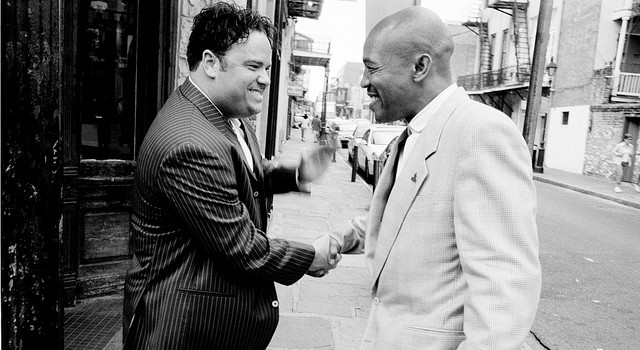His reputation speaks volumes.
She leads a channel of one of the most respected mutual fund distribution organizations in the land.
His innovations and ideas have been cross pollinated throughout other channels – and have added considerable billions to the top line of the firm.
She is a results driven leader who has delivered double digit growth, consistently, for years.
And recently he came within a pen stroke of leaving his current employer.
Her reasons for leaving had little to do with compensation, as she was well rewarded for her efforts.
His reason for seeking out another firm was based primarily on the inability of his immediate superiors to offer any form of acknowledgement or praise for the work that he so consistently did.
She wanted to hear, “We appreciate you.”
He was simply looking for a, “Thanks for the work that you do.”
Studies prove again and again that praise is a powerful drug
Much more than a warm fuzzy, praise triggers a significant reaction in the brain:
In companies around the world, workers are feeling the effects of a highly addictive chemical. When they experience a reduction of this chemical, even routine work is compromised by feelings of frustration, anxiety, and difficulty in learning. Conversely, increases of this chemical stimulate feelings of pleasure and pride. And, this chemical’s effects wear off fast. The need for increased doses can cause people to make serious, career-altering decisions just to get another hit. And the only problem is that too few of us have enough.
The chemical is dopamine, a neurotransmitter produced in the brain. Dopamine stimulates the ventral striatum and nucleus accumbens, the parts of the brain that process rewards and create positive emotions like satisfaction and enjoyment. Evolutionary biologists think dopamine had a hand in humans’ ability to learn and survive — if you get a charge of dopamine after a successful hunt, you’ll learn to go back for more of the dopamine surge and the prey.
“When people don’t get enough recognition, they ask themselves, ‘What am I doing this for? Nobody cares’, It’s not just about money. People want recognition; they want to be noticed and appreciated.”
source: Gallup Business Journal
So why do so many distribution leaders withhold the love?
Mistaking money for recognition: At most national sales meetings, one of the highlights is the rewards dinner, wherein wholesalers are recognized for various levels of achievement.
Ask most of the award winners and they will tell you that the buzz they got from walking up on stage to accept the $49.99 trophy was almost as good (better?) than the buzz they got from making $535,000 that year.
Yet we once knew of a senior leader who simply refused to hold award ceremonies, believing instead that the paycheck was the only reward needed.
Managing up and not leading their direct reports: Kathy Freeman, CEO of Kathy Freeman Company explains, “Some of the most successful executives (in terms of position and compensation packages) that we see today have achieved their status by being highly calculated and cunning in their ability to manage up.
This strategy works to the detriment of the teams of people that report into them.
In those firms where leadership ‘down’ is absent, we see a trickle of departures that begins with an isolated one or two incidents of dissatisfaction, which evolves into a virtual stream of exits.
Too self absorbed to care: Indelicate observation, yes.
And often true.
Leaders who are too narcissistic to genuinely express gratitude and praise.
Narcissism comes in both casual and pathological forms. And its symptoms include grandiosity, high levels of entitlement, the belief that one is omnipotent, lack of empathy, a need to exhibit flashy status markers such as fancy homes, and a need to be at the right parties or prestigious organizations.
source: NY Times
Kathy adds, “These leaders have what they want – whether it’s money, car, multiple houses, country club membership or stature in the firm, and they lack the motivation to care for others and they simply don’t. For a firm to survive, and thrive, these leaders need to move on or move out.”
Flat out too busy: Today’s leader has 101 things on their plate, with a fresh batch of new items delivered daily.
It stands to reason that this perceived ‘softer’ side of management can get lost on the to do list.
And yet, just as our personal relationships need to be intentionally nourished, so to does the employee who deserves the praise.
Simply not aware: Many managers, even those with best intentions, simply are not cognizant of their praise scores.
Specifically, what is the ratio of their praise to their criticism?
Our industry produces leadership drivers; goal oriented professionals who seek to improve at all times.
And may not stop long enough to pass out the praise.
“Some leaders simply need better coaching on how to praise, or to better understand the importance of praise”, says Kathy. “They weren’t professionally/managerially brought up to say ‘thank you’ or ‘good job’ – it simply doesn’t make its way into their managerial style”, she adds.
“This is an easy fix. Some mentorship and candid feedback from a direct report can actually make a big difference”, she concludes.
Offer some praise today
Leaders, you have invested untold time and money into the development of your teams.
To lose team members due to more complex issues (salary, equity, promotion, relocation, etc.) is part of business.
Losing the best and brightest due to an inability to express appreciation and praise is completely preventable.


 A Video Message From Rob Shore About Your PVP-Peerless Value Proposition®
A Video Message From Rob Shore About Your PVP-Peerless Value Proposition® 23 Client Event Ideas For Wholesalers To Use With Advisors
23 Client Event Ideas For Wholesalers To Use With Advisors 6 Checkpoint Topics For Wholesalers To Discuss With Advisors
6 Checkpoint Topics For Wholesalers To Discuss With Advisors The Results: Wholesaler Praise
The Results: Wholesaler Praise 12 Numbers For Wholesalers To Obsess About Besides Production
12 Numbers For Wholesalers To Obsess About Besides Production